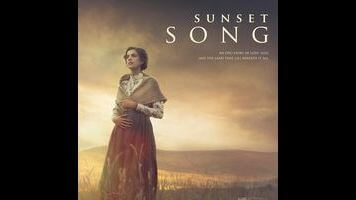Terence Davies missteps with the sluggish Sunset Song

Stultifying in spots, the period drama Sunset Song marks an unexpected misstep for Terence Davies, the eccentric filmmaker whose movies evoke limbo states of memory and repressed feeling using a very British vocabulary of drab spaces. Davies’ features, none of which are set past the 1950s, trade in the dreary day-to-day of generations past: bedrooms as tragic places of sex and death, defined by their potential for both closeness and loneliness; staircases climbed again and again, never leading anywhere new; communal songs as transcendent moments in a hushed world. All are present and accounted for in this long-in-the-works adaptation of Lewis Grassic Gibbon’s novel; it’s just as personal as Davies’ other literary and theatrical adaptations (The Neon Bible, The House Of Mirth, The Deep Blue Sea), but nowhere as inspired or affecting. Studiously classical, the movie commits to its leaden pace and to the least compelling heroine in Davies’ otherwise remarkable body of work.
It’s far from a complete wash. Even if Gibbon’s saga of disappointment and thwarted independence in early 20th century rural Scotland doesn’t translate to the screen, Sunset Song still benefits from Davies’ personal palette. Raised working-class in post-war Liverpool, Davies started off with autobiographical films (Distant Voices, Still Lives and The Long Day Closes, both masterpieces), but has since shifted to adaptation, often in the longstanding tradition of encoding queer themes into stories about independent women suffocated by social conventions. Sunset Song, which was shot in a combination of digital and 70mm, is the closest the writer-director has come to the look of classic melodrama, though the crepuscular lighting makes every interior look like the back room of a rustic funeral parlor. The soughing fields and harsh sloping hills, filmed partly in New Zealand, suggest a muted take on the rural landscapes of the Technicolor and Cinemascope era.
There is even a hint of glamour to the casting of onetime modeling it-girl Agyness Deyn as protagonist Chris Guthrie, a smart young woman who survives a hellacious teenhood to marry the sensitive Ewan (Kevin Guthrie), only to lose him to the army. Since shifting to adaptations, Davies has relied more and more on his lead actresses to carry films. Though Deyn is capable in the role, she isn’t an actor on the level of The Deep Blue Sea’s Rachel Weisz or The House Of Mirth’s Gillian Anderson, and her long-suffering character lacks the flaws that make Davies’ earlier heroines seem real. As the years pass at the Guthrie homestead, Blawearie, Chris becomes a witness to personal and national tragedy, from infanticide and suicide to the repercussions of World War I. She outlives an abusive father (Peter Mullan, terrifying), watches the man she loves turn into a dangerous stranger, and defers her dream of becoming a school teacher until drudgery is all she has left.
Deaths come as regularly as the visits from Meldrum (Simon Tait), who appears to be the world’s worst country doctor, arriving bag in hand to declare that there is little that can be done. The verdant scenery represents a departure from a director whose movies are typically dusted with urban soot, but the source material’s early 20th century political talking points (pacifism, socialism, Scottish identity) never hold interest; they just hang there like a sopping wet laundry on a windless day. The result is awkward, sometimes corny, occasionally boring, but still elegantly composed and peppered with grace notes of sensuality and despair. In a funny way, Sunset Song, Davies’ weakest and squarest drama, ends up simulating its celebrated director’s philosophy of life: something endured for fleeting moments that never fulfill their promise.